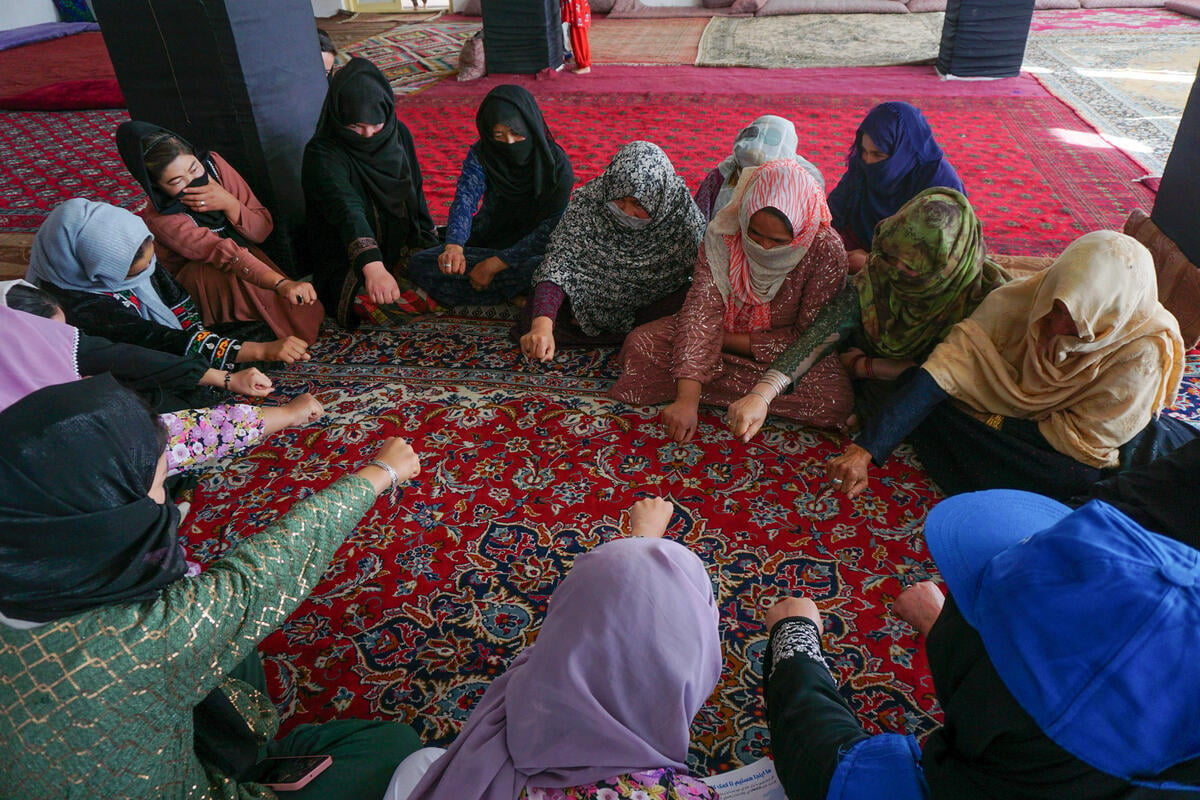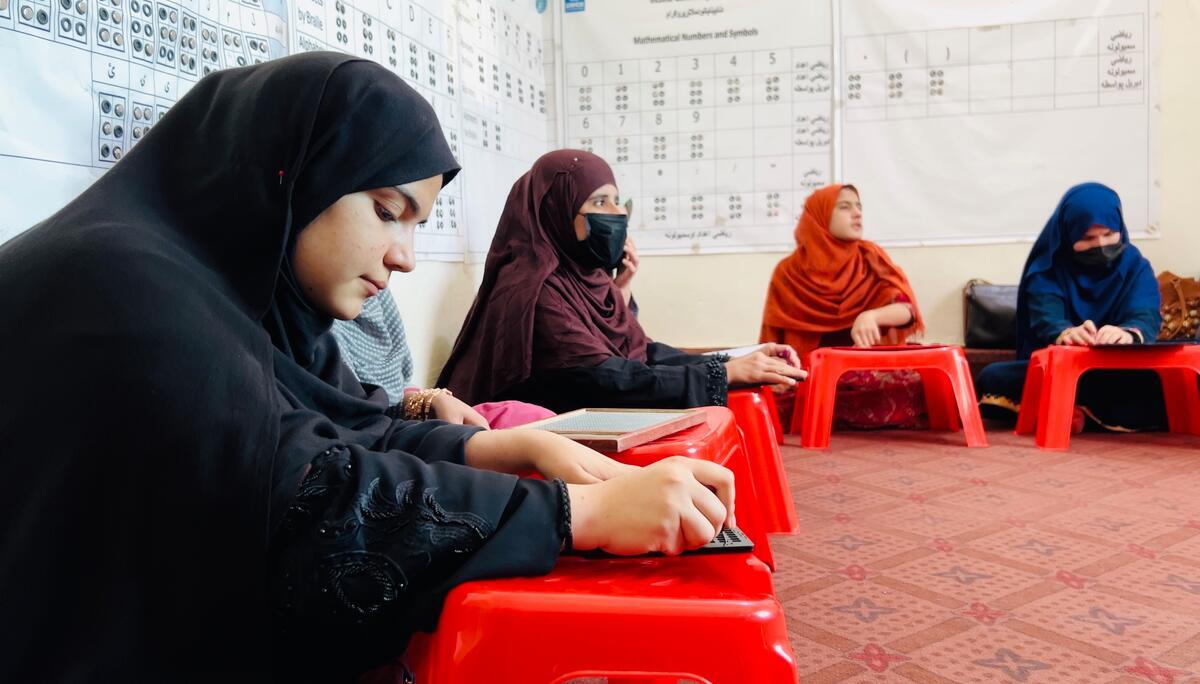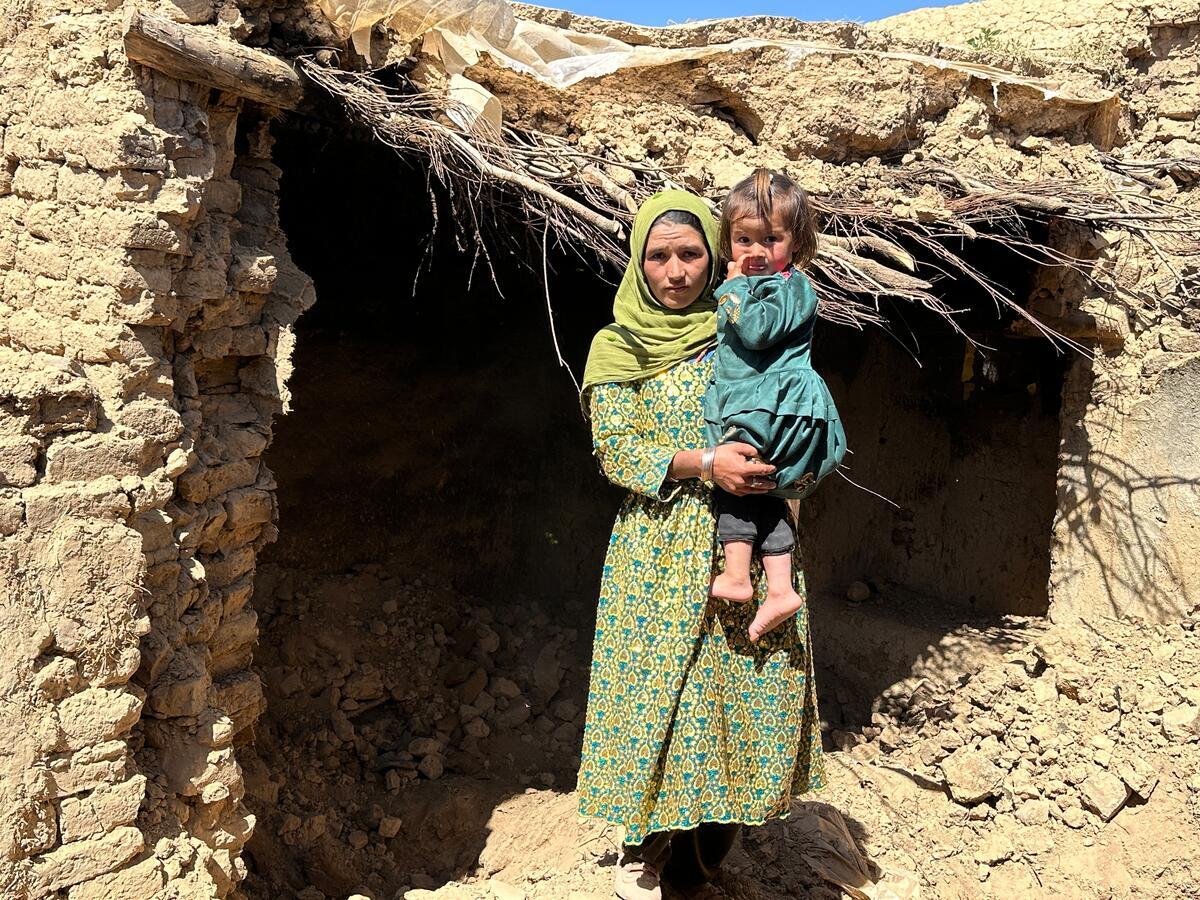Afghan returns exceed expectations; aid agencies appeal for more funds
Afghan returns exceed expectations; aid agencies appeal for more funds

KABUL, Afghanistan, May 30 (UNHCR) - More than 800,000 Afghan refugees have returned home in the last three months, an astonishing repatriation rate that is straining the resources of aid agencies operating in Afghanistan.
Since UNHCR and the Afghan Interim Administration started facilitating voluntary returns on March 1, more than 730,000 Afghans have returned from Pakistan, 60,000 from Iran and almost 10,000 from Tajikistan and Turkmenistan. More than 100,000 other Afghans are believed to have returned outside UN channels since late 2001.
"This is the largest and fastest repatriation UNHCR has seen since 800,000 refugees returned to Kosovo in mid-1999," said the refugee agency's spokesman, Peter Kessler. "The pace of return has exceeded expectations and strained aid agencies' resources, not to mention Afghanistan's absorption capacity."
UNHCR had planned to help up to 1.2 million Afghans home this year - including 800,000 from abroad and 400,000 internally displaced persons - but given the scale and rate of returns, the agency is currently reviewing its planning and budget figures for 2002.
Some 3.5 million Afghan refugees were hosted in Pakistan and Iran when the repatriation programmes started, with several hundred thousand more scattered around the world.
UNHCR fears there may not be enough support forthcoming to keep reintegration sustainable. So far, the agency has received $179 million out of the $271 million needed from October last year to the end of 2002 to aid Afghan returnees and assist refugees in the surrounding states. In view of the large numbers of returnees, the agency may have to appeal for even more money.
"At present, UNHCR has funding only until the end of June. If fresh contributions do not arrive, the agency may have to consider stopping travel grants or drastically reducing basic housing and water projects," said Kessler.
With nearly 30 offices throughout Afghanistan - the largest humanitarian presence in the country - UNHCR spends more than $20 million a month. So far, the agency has distributed $12 million in cash and provided family kits containing plastic sheets, blankets, buckets/jerry cans, hygienic kits and soap to the returnees.
With the International Organization for Migration (IOM) suspending its transport programme indefinitely, UNHCR is introducing a new system of cash grants for returnees from Iran, and will now provide travel grants ranging from $5 to $30 per person depending on the destination.
Some humanitarian agencies have been unable to provide much-needed reintegration assistance due to funding difficulties, severely hampering the sustainability of repatriation.
At distribution points in Herat, Kabul and Kandahar, returnees continue to receive a full family package of assorted items, though UNHCR sometimes must substitute some items. The key Jalalabad distribution centre has been forced to ration some items; families which receive less than the complete family kit are given coupons redeemable as soon as stocks are available.
The UN's World Food Programme (WFP) reports that in Afghanistan, it faces a shortfall of 254,000 metric tons of wheat worth an estimated $138 million. It warns of an immediate shortfall of 50,000 metric tons in June and cautions that supplies may worsen further in July. In Jalalabad, Kabul and Herat, returnee families participating in the Interim Authority/UNHCR initiative are currently receiving only 50 kg of WFP wheat, one third the usual 150 kg return allowance.









